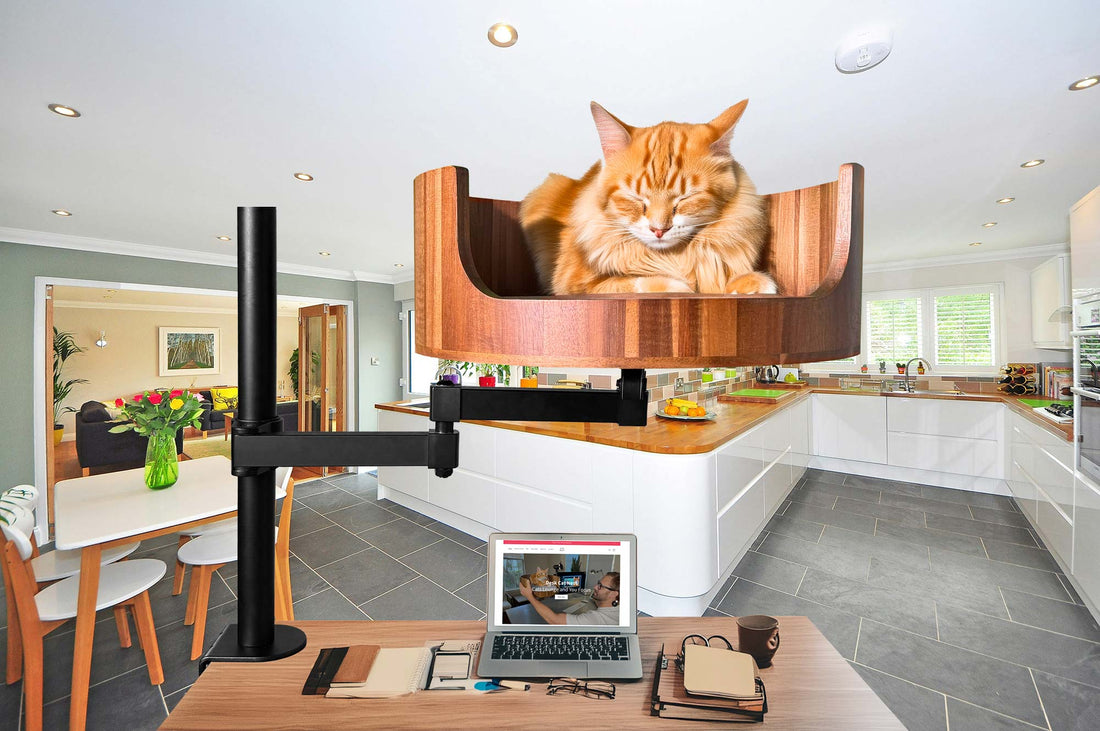
Why is my cat drooling excessively? Here’s what to know.
Share
If you've noticed your feline friend drooling more than usual, you may be wondering what could be causing this behavior. Excessive drooling in cats can be a cause for concern, as it may indicate an underlying health issue that needs to be addressed. From dental problems to poisoning, there are a variety of reasons why a cat may be drooling excessively. In this article, we will delve into the potential causes of excessive drooling in cats and what you can do to help your furry companion.
One common reason for excessive drooling in cats is dental issues, such as gum disease or tooth decay. Cats can also drool excessively if they have eaten something toxic or harmful, such as certain plants or household chemicals. Additionally, certain medical conditions, such as kidney disease or oral tumors, can also lead to increased drooling in cats. It's important to pay attention to any changes in your cat's drooling habits and consult with a veterinarian if you have any concerns. By understanding the potential causes of excessive drooling in cats, you can help ensure that your feline friend stays healthy and happy.
1. Excessive drooling in cats can be a sign of various health issues, including dental problems, oral trauma, or underlying illnesses.
2. Cats may drool excessively due to stress, anxiety, or motion sickness, so it's important to consider environmental factors as well.
3. If your cat is drooling more than usual, it's essential to observe their behavior, appetite, and overall well-being to determine the underlying cause.
4. Regular dental check-ups and maintaining good oral hygiene are crucial in preventing dental issues that may lead to excessive drooling.
5. Consulting with a veterinarian is recommended if your cat's drooling persists or is accompanied by other concerning symptoms.
Causes of Excessive Drooling in Cats
Excessive drooling in cats can be caused by a variety of factors. One common reason is dental issues, such as gum disease or tooth decay. Other possible causes include oral ulcers, foreign objects stuck in the mouth, nausea, respiratory infections, ingestion of toxic substances, and certain medical conditions like kidney disease or liver problems. It's important to monitor your cat's drooling behavior and consult a veterinarian to determine the underlying cause.
Behavioral Reasons for Excessive Drooling
In some cases, excessive drooling in cats may be attributed to behavioral factors. Stress or anxiety can lead to increased saliva production and drooling. Cats may also drool excessively when they are overly excited or overstimulated. If you suspect that your cat's drooling is due to behavioral issues, try to identify and address the underlying cause to help reduce the drooling.
Treatment Options for Excessive Drooling
The treatment for excessive drooling in cats will depend on the underlying cause. In cases where dental problems are to blame, a dental cleaning or extraction may be necessary. If the drooling is caused by a medical condition, such as kidney disease, treatment will focus on addressing the underlying health issue. Behavioral causes of drooling may require behavior modification techniques or stress management strategies. Your veterinarian will be able to recommend the best course of action based on the specific cause of your cat's excessive drooling.
When to Consult a Veterinarian
If your cat is drooling excessively, it's important to seek veterinary advice promptly. Excessive drooling can be a sign of a serious medical condition that requires immediate attention. Your veterinarian will perform a physical examination, run diagnostic tests if necessary, and determine the underlying cause of the drooling. Early intervention is key to addressing the problem effectively and ensuring the health and well-being of your feline companion.
Frequently Asked Questions
What could be causing my cat to drool excessively?
Excessive drooling in cats can be caused by a variety of factors such as dental issues, oral pain, nausea, respiratory infections, allergies, or even excitement or stress. It's important to consult with a veterinarian to determine the underlying cause of your cat's excessive drooling.
Can the Desk Cat Nest help with my cat's excessive drooling?
While the Desk Cat Nest is designed to provide a comfortable and secure space for your cat, it may not directly address the underlying cause of your cat's excessive drooling. However, creating a cozy and stress-free environment for your cat may help alleviate any potential anxiety or discomfort that could be contributing to the drooling.
Is the Desk Cat Nest easy to clean in case my cat drools on it?
Yes, the Desk Cat Nest is made with easy-to-clean materials that can be wiped down or machine washed as needed. Keeping the nest clean and free of drool or other debris is important for maintaining a healthy and hygienic environment for your cat.
Should I consult with a veterinarian about my cat's excessive drooling before purchasing the Desk Cat Nest?
Yes, it's always recommended to consult with a veterinarian if your cat is experiencing any unusual symptoms such as excessive drooling. A vet can help diagnose the underlying cause and provide appropriate treatment, which may complement the use of the Desk Cat Nest as a comfortable resting spot for your cat.
In conclusion, the Desk Cat Bed is a valuable choice for cat owners whose pets are experiencing excessive drooling. The raised design of the bed ensures proper airflow, keeping your cat cool and comfortable while they rest. Additionally, the soft and plush material provides a cozy and soothing environment for your feline friend. By investing in a Desk Cat Bed, you can help alleviate your cat's excessive drooling and provide them with a comfortable and relaxing space to rest.



















































